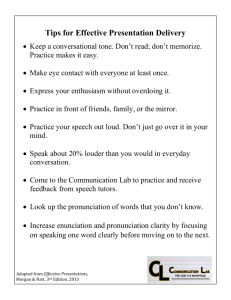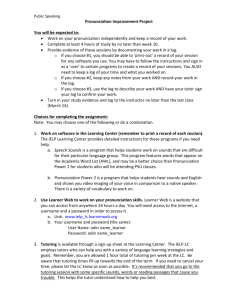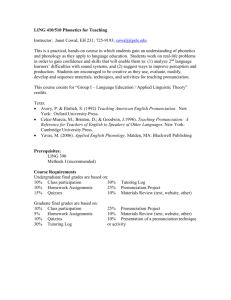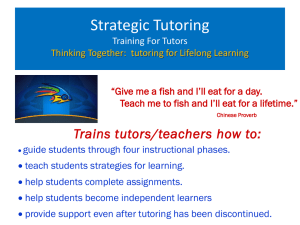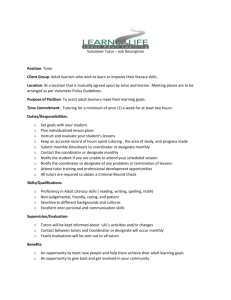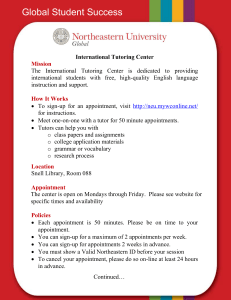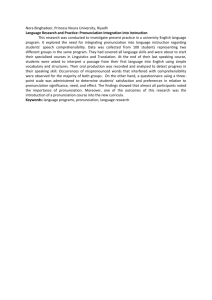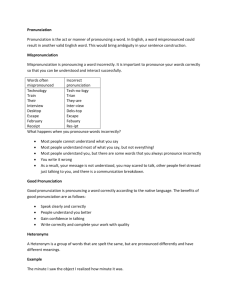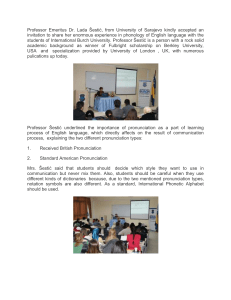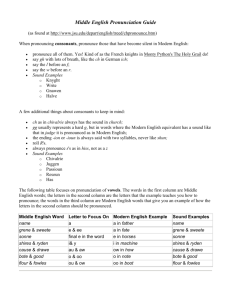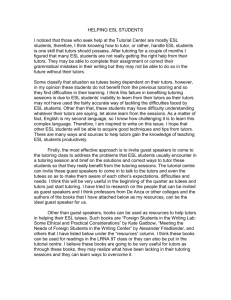File - Davis Grant Dye e
advertisement
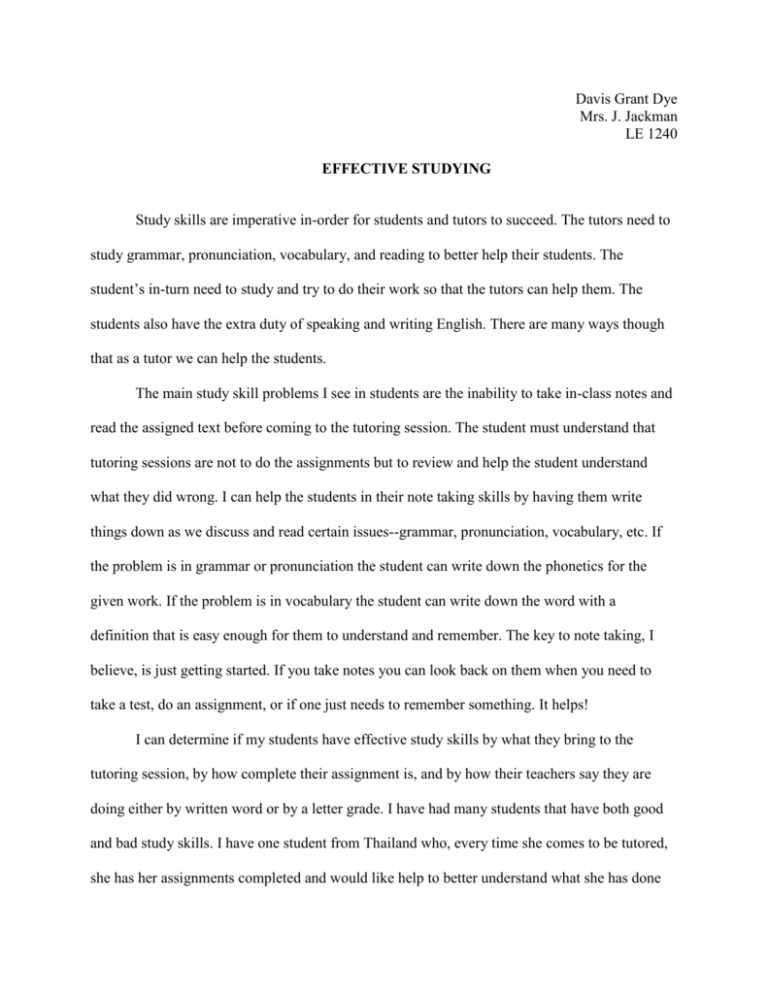
Davis Grant Dye Mrs. J. Jackman LE 1240 EFFECTIVE STUDYING Study skills are imperative in-order for students and tutors to succeed. The tutors need to study grammar, pronunciation, vocabulary, and reading to better help their students. The student’s in-turn need to study and try to do their work so that the tutors can help them. The students also have the extra duty of speaking and writing English. There are many ways though that as a tutor we can help the students. The main study skill problems I see in students are the inability to take in-class notes and read the assigned text before coming to the tutoring session. The student must understand that tutoring sessions are not to do the assignments but to review and help the student understand what they did wrong. I can help the students in their note taking skills by having them write things down as we discuss and read certain issues--grammar, pronunciation, vocabulary, etc. If the problem is in grammar or pronunciation the student can write down the phonetics for the given work. If the problem is in vocabulary the student can write down the word with a definition that is easy enough for them to understand and remember. The key to note taking, I believe, is just getting started. If you take notes you can look back on them when you need to take a test, do an assignment, or if one just needs to remember something. It helps! I can determine if my students have effective study skills by what they bring to the tutoring session, by how complete their assignment is, and by how their teachers say they are doing either by written word or by a letter grade. I have had many students that have both good and bad study skills. I have one student from Thailand who, every time she comes to be tutored, she has her assignments completed and would like help to better understand what she has done wrong and what she has done right and why it is that answer. The moment she opens the book I see notes in the margins in Thai and English. When she runs out of room in her book she writes it on a pad of paper. Before you know it she has filled most of that up. She truly has a genuine desire to learn. I first started working with her on reading. She could barely pronounce the English words properly and had to be corrected about every other word. Many times she would say that it is too hard and that she wanted to stop. I encouraged her to give it her best shot and that she should write down the words that she could not pronounce and we could go over them after the reading. She did so, filling up her pad of paper once again. When she finished reading we took a minute break and began the reading again, this time working on just pronunciation. She did a lot better after this. I challenged her to read it aloud to someone or to herself so she could hear how the pronunciation was supposed to be. The next class period that I saw her I was shocked. She had her notes written all over the book in Thai and English and was able to read through the entire passage, missing only one or two words. The next passage she read through she could read all the way through it and was able to pronounce the words correctly. I have other students that are the complete opposite, that bring their assignments in and say, "Correct this for me!" or "Do this for me!" That is when you have to tell them no and that they need to try and do it themselves before they come to the session. They might get mad, but in-order for us as tutors to be willing to do our part they must willing to do theirs. There are many things in the ESL Lab at Salt Lake Community College (SLCC) that can help the students be aware of and learn necessary study skills. We provide reading books at different levels for the students to read in the lab and make them available for check-out so the student can take them home and read them. We provide a program called ELLIS on PC and MAC for students to practice their speaking and pronunciation. They can access this program from home through the All Access Network Salt Lake Community College created to help those students that do not have or cannot afford programs such as ELLIS, Microsoft Word, etc. We provide worksheets that students can work on for their grammar and vocabulary. We also have all the books that levels one through four teach at Salt Lake Community College. The basic definition of a tutor is someone that can help someone else develop and learn effective study and organizational habits so that they can become successful at school and work and have an impact upon their community and surroundings. The skills that I need to improve on are asking to see the student’s notes and see what they have written--if the notes are on the given subject, or if it is just a page of doodling. I can also personally improve by studying more and find effective ways of doing it so that I can teach the students I am tutoring. Study skills are imperative in-order for students and tutors to succeed. There are many areas that can always be improved to make studying a little bit easier, such as taking notes, writing in the margins of your books, or it could even be using the provided resources by the ESL lab. Our job as a tutor is to help the student study better so that they can get better grades and be more presentable to the world.
